Group pilots alternative wastewater treatment system in Marstons Mills
How to clean water in those hard-to-reach places on the Cape
Bronwen Howells Walsh
The Barnstable Patriot
Oct 11, 2021
MARSTONS MILLS — Before Casey Chatelain left the Cape for graduate school, she interned with the Barnstable Clean Water Coalition and volunteered on a town committee that recommended testing an alternative wastewater treatment system.
Now with a University of Rhode Island master’s degree in oceanography, she is deputy director of the Barnstable Clean Water Coalition and driving a project she helped develop incorporated as part of the town’s Comprehensive Wastewater Management Plan. The project couples traditional sewering with “adaptive technologies” that are already getting results.
Fifteen of 34 quarter-acre Sandy Shore lots along Shubael Pond in Marstons Mills agreed to retrofit their Title 5 septic systems with NitROE® tanks to help the coalition prove the advantages of the new, high-performing water treatment system and its potential to reduce water pollution in communities around the region.

“The system is entirely gravity-fed,” Chatelain said. The pond acts as a shadow, in that it blocks upgradient nutrients, “which helps us determine that changes in groundwater sampling wells are due to the installation of these alternative systems.”
The NitROE tanks add a limestone-filled aeration chamber, air pump and woodchip chamber, helping to “off-gas” much of the nitrogen from effluent prior its release to the drain field.
When the waste stream enters the woodchip chamber, bacteria converts nitrate-N to nitrogen gas, which is pumped out before the flow reaches the leach pit and gets absorbed by groundwater.
Over the past several years, scientists have begun sounding the alarm about the growing threat posed by toxic blooms of cyanobacteria in ponds and lakes across the Cape. Shubael Pond was among those temporarily closed due to “algae blooms that pose a danger to animals and humans,” according to the website of Friends of Shubael Pond.
Given that the Cape is so susceptible to hurricanes, properties retrofitted with NitROE tanks “could still use the facilities and flush without polluting our waterways,” Chatelain said. “Real-time monitoring sounds an alert if a pump goes down.”
In cooperation with the Massachusetts Alternative Septic System Test Center at Joint Base Cape Cod, the coalition is now working to get General Use approval of the system in the state.
“BCWC believes they are proven,” Chatelain said. “They already have Provisional Use approval, which requires up to 15 systems in the ground for two years. Data from the 18 systems already in the ground show an average reduction to 8.7mg/l while no generally approved system gets below 19mg/l, she said.
“It’s really exciting to have an idea and actually put it in the ground and see it working,” she said. “It’s preliminary research right now. We want to provide an option to people,” especially since much of Cape Cod may never see traditional sewers, in part because of the sandy soil.
Six more NitROE systems will be installed at Sandy Shore over the next two weeks, complete with replacement landscaping and driveways after the dig. Chatelain’s team hopes to complete all 15 by the end of the year.
“This work is all on BCWC’s dime,” she added. “We’re lucky to have a board and donors who recognize the importance of this work. We’re on a rescue mission. This work affects the entire region. It’s a race against time.”
Group pilots alternative wastewater treatment system in Marstons Mills – Cape Cod Times
